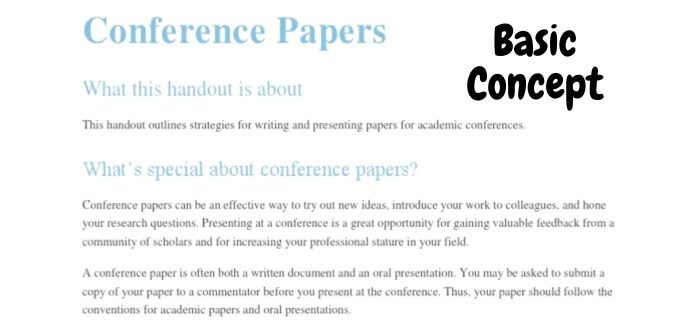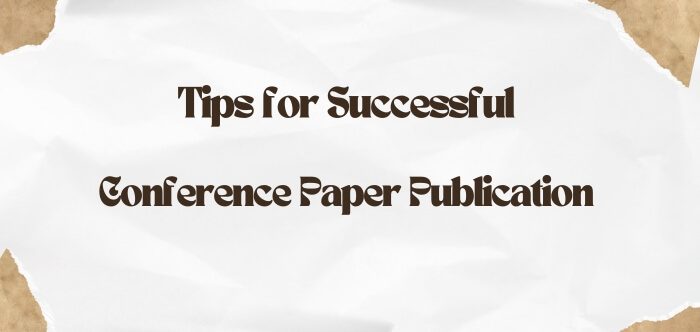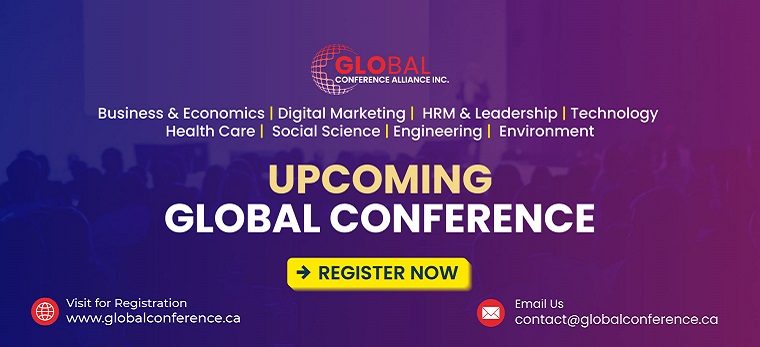When it comes to sharing your research with the academic world, figuring out where to start can be a bit overwhelming. You might have heard about publishing conference papers, but, is conference paper easy to publish?
Yes, it is. Publishing your research at conference events is a breeze compared to the uphill climb of getting it into a high-impact journal. This route offers a quicker path to sharing your findings with a wider audience.
We’ll break down why conference paper publication is a more accessible option. It’s all about making your academic journey more manageable and helping you get your research out there. Let’s dive in!
Basic Concept of Conference Papers
Conference papers are concise research documents presented at academic conferences. They condense findings, methods, and results into a focused format. These papers serve as platforms for researchers to share their work, exchange ideas, and receive feedback from peers.

Typically, a conference paper consists of an introduction, methodological details, and key findings. This succinct structure helps conference attendees grasp the essence of the research quickly. While they may not undergo the rigorous peer-review process of journal articles, conference papers provide opportunities to disseminate research efficiently, with quicker publication timelines.
If you attend a conference with author papers, you can present your work to experts and other international attendees. This provides an invaluable opportunity to share your research findings, gain feedback, and engage in discussions with fellow professionals in your field.
Presenting at conferences also enhances your visibility within the academic community and can open doors to collaboration and further opportunities for research and professional development.
Is Conference Paper Easy to Publish?
Yes, generally it is easy to publish. However, it depends on some factors. Generally, conference papers are quicker to publish and have benefits. But to know how easy it is, we need to look at a few things.

Selecting the Right Conference
- Conference Reputation: The ease of publishing a conference paper can vary widely based on the reputation of the conference. High-profile conferences are often more competitive, while smaller or specialized ones may be more accessible.
- Field Relevance: Consider if the conference aligns with your research field. A conference closely related to your topic may be more receptive to your work.
Publication Speed
- Timely Dissemination: Conference papers offer a swifter route to disseminate your research compared to lengthy journal review processes, making them suitable for time-sensitive findings.
- Presenting Preliminary Research: If you have preliminary results or ongoing work, conferences provide a platform to share these before finalizing your study.
Feedback and Networking
- Immediate Feedback: Conference presentations allow for real-time feedback from peers, enabling you to improve your research before formal publication.
- Networking Opportunities: Conferences foster networking with experts in your field, potentially leading to collaborations, research partnerships, or invitations to submit to journals.
Limited Space
- Concise Communication: Conference papers typically have strict page limits, forcing researchers to present their work succinctly. This can be challenging but helps hone your ability to convey essential information effectively.
- Supplementary Materials: Some conferences allow supplementary materials or presentations, providing opportunities to share additional details beyond the paper.
Impact and Citations
- Journal Prestige: High-impact journals often carry greater prestige and may lead to more citations over time. Consider your long-term academic goals when deciding between conference and journal publication.
- Complementary Publication: In some cases, presenting at a conference and later publishing in a journal can complement each other. The conference introduces your work to the community, while the journal article offers a more comprehensive and detailed account.
Publishing conference papers depends on factors like the conference you pick, how quickly you want to share, getting feedback, space limits, and long-term impact. Consider these factors based on your research goals.
Advantages of Conference Paper Publication
Academic research benefits greatly from conference paper publication. Researchers can make informed decisions about sharing their work by understanding these benefits.
Swift Dissemination
Conference papers provide a rapid path to share your findings. Unlike lengthy journal review processes, conference timelines are typically shorter, allowing your research to reach a broader audience sooner.
Feedback and Collaboration
Presenting at conferences offers a chance to receive immediate feedback from peers. This input can improve your research and foster collaborations, enriching your work with diverse perspectives.
Networking Opportunities
Conferences serve as hubs for networking within your research field. Connecting with experts and peers can lead to valuable collaborations and insights. These relationships may open doors for future research projects or collaborations.
Testing Research Ideas
Conference presentations allow you to test your research ideas and hypotheses before formal publication. This can refine your work and identify areas for improvement, saving time and resources in the long run.
Publication Record
Conference papers contribute to your publication record, demonstrating your active engagement in research. This can be especially valuable for early-career researchers, as it showcases your commitment to advancing knowledge in your field, potentially aiding in career advancement opportunities.
Challenges You May Face in During Academic Publishing
Academic publishing is a way for researchers to tell others about their discoveries and ideas. However, it’s not always a straightforward path. Researchers face several challenges along the way, including:
- Stringent Peer Review: Many journals have rigorous peer-review processes, leading to possible rejection or lengthy revisions.
- Publication Costs: Some journals charge substantial fees for open access or page charges, especially in high-impact publications.
- Competition: The academic world is competitive; your work competes with numerous others for publication space.
- Lengthy Timelines: Journal articles may take months or even years to get published, delaying the dissemination of your research.
- Selectivity: High-impact journals are highly selective, making it harder to get your work accepted.
- Formatting Requirements: Journals often have strict formatting guidelines that can be time-consuming to meet.
- Language Barriers: Non-native English speakers may struggle with language requirements and manuscript clarity.
- Ethical Considerations: Ethical issues like plagiarism or authorship disputes can cause publication delays.
- Finding the Right Journal: Identifying the most suitable journal for your research can be challenging.
- Reviewer Feedback: Constructive feedback from reviewers can be helpful but sometimes challenging to address effectively.
Tips for Successful Conference Paper Publication
Making a meaningful impact on your academic community is the key to publishing a successful conference paper in a journal. Here are some valuable tips to help you achieve this:

Select the Right Conference
Choose a conference aligned with your research field and objectives. Ensure it’s reputable and suits your work’s scope. A well-matched conference increases your chances of acceptance and relevance to your research.
Understand Submission Guidelines
Read and follow the conference’s submission guidelines meticulously, including formatting, page limits, and submission procedures. Adhering to these rules is critical for a smooth review process and acceptance.
Craft a Clear Abstract
Your abstract should provide a concise overview of your research, enticing readers to delve deeper into your paper. It’s your paper’s first impression, so make it engaging and informative. Highlight key findings and the problem your research addresses.
Structure and Clarity
Organize your paper logically, with clear headings and subheadings. Ensure your writing is concise, coherent, and easy to follow. A well-structured paper aids comprehension and showcases your research effectively.
Highlight Contribution
Clearly articulate your research’s significance and how it advances the field. What unique insights or solutions does it offer? Make it clear why your work matters and how it contributes to existing knowledge.
Effective Visuals
Use figures, tables, and graphs judiciously to illustrate key points. Ensure they are clear, labeled, and enhance understanding. Visual aids can make complex information more accessible and improve the overall quality of your paper.
Engage with the Audience
Prepare a compelling presentation to engage your audience. Use visuals, real-life examples, and storytelling techniques. A captivating presentation can leave a lasting impact and help convey your research effectively.
Seek Feedback
Before submission, seek feedback from peers or mentors to refine your paper and presentation. Constructive input can greatly enhance quality and identify areas for improvement. External perspectives can uncover blind spots and enhance your chances of success.
Conclusion
In academic publishing, the question often looms: Is conference paper easy to publish? We’ve explored the perks of conference papers fast sharing, feedback, networking, idea testing, and bolstering your publication record. But hurdles exist in academic publishing, rigorous reviews, costs, competition, time, and formatting.
Your choice between conference and journal publication depends on your research goals. Conferences offer a swift way to share your work and connect with peers. They’re lively knowledge hubs.
Whether you’re just starting out or an experienced academic, remember that publishing a conference paper depends on several factors. To make the right choice, consider these factors carefully. Your research journey will reveal the answer you’re looking for about conference paper publication.





